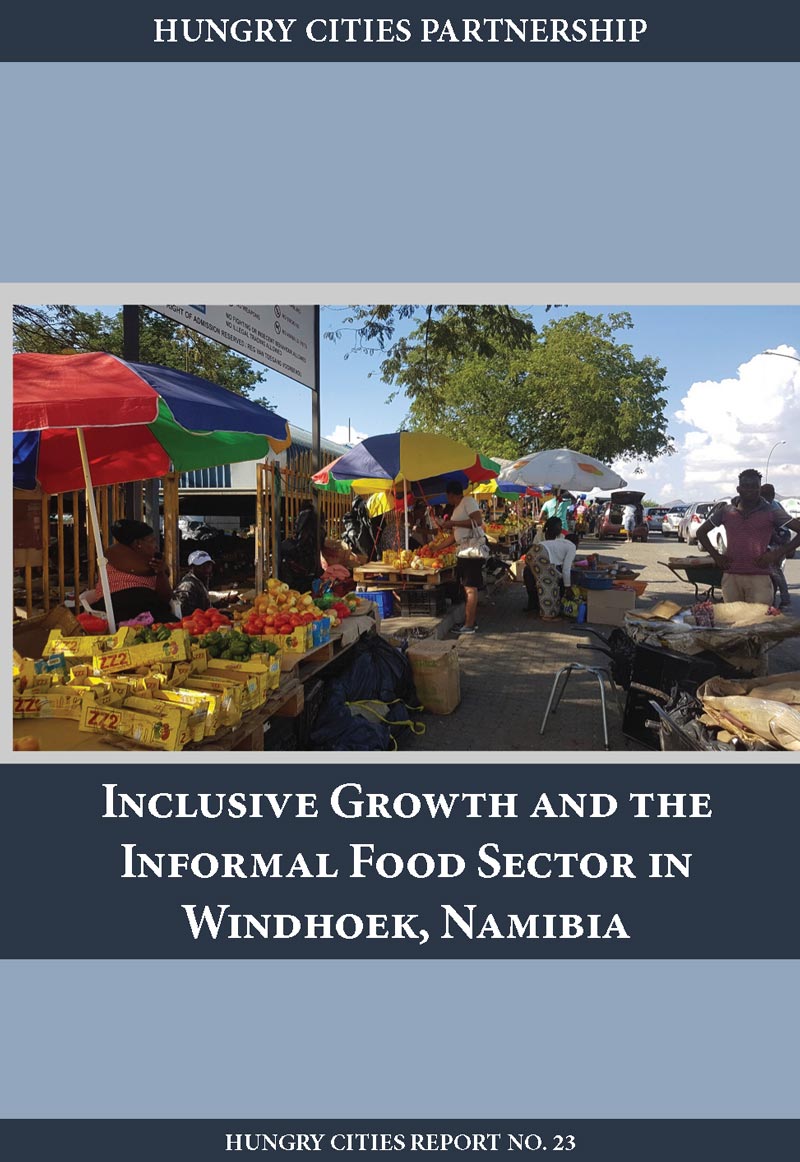This report presents the results of the first comprehensive survey of the informal food sector in the Namibian capital of Windhoek. As such, it aims to shed light on the food system of the country’s largest urban centre. The informal food sector is critical to the food security of poor urban households in most rapidly growing towns and cities in the Global South. It comprises a dense and diverse network of formal and informal markets, suppliers, transporters, mobile traders, and street food vendors making food more accessible and affordable in low-income areas. The informal food sector represents an “urban laboratory” for examining whether and how inclusive growth strategies can positively affect entrepreneurship and incomes, and help in alleviating poverty and mitigating the crisis of food insecurity. The Windhoek survey found that most informal food vendors are small-scale, precarious and survivalist rather than opportunistic operations. Most enterprises are single-person operations where the income from the business is diverted towards basic livelihood needs of dependants rather than being reinvested. Food bought for the business is also used to feed household members, further constraining profit. Among the report’s conclusions is that a more robust social grant system of the kind proposed by advocates of social protection would reduce pressure on food vendors to plough resources into household support.

